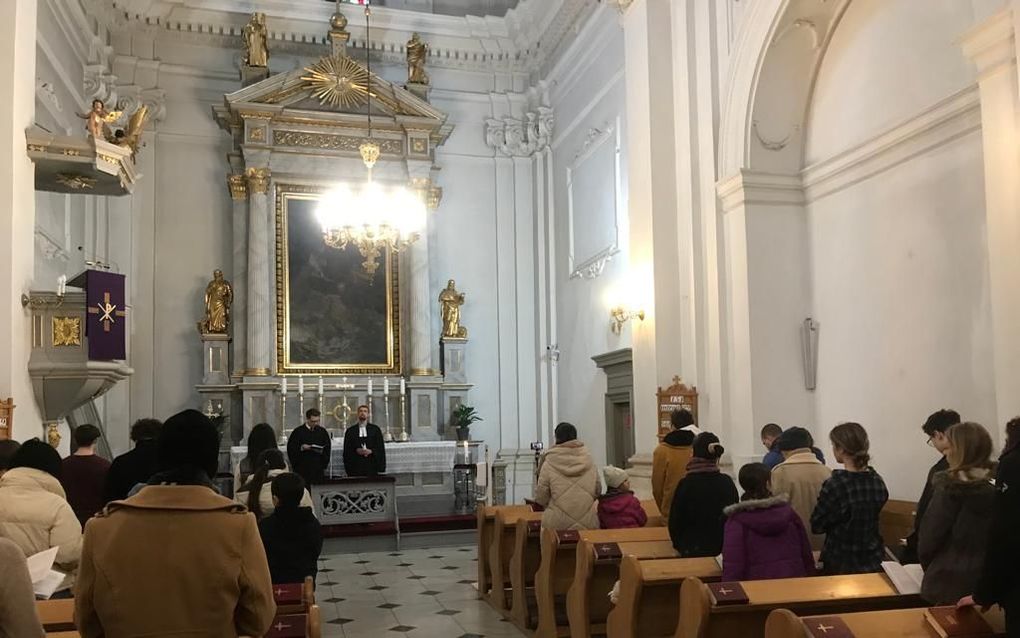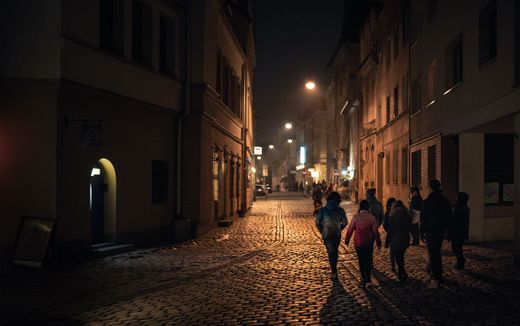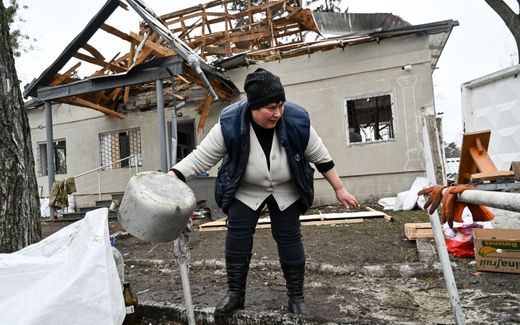War not far away in Polish pastor's sermon in Krakow
08-03-2022
Central Europe
Ben Provoost

Photo RD
Central Europe
Usually, the Presbyterian congregation in Kraków meets in an ordinary building. On Sunday, they moved to a Lutheran church building to be able to welcome Ukrainian churchgoers.
Sunday, a little after lunchtime. Despite the grey weather, Krakow is busy. A street musician plays “Amazing Grace”. In front of a centuries-old Lutheran church, the sounds die away. Inside, the Presbyterian congregation of “Christ the Redeemer” meets. Around two o’clock, pastor Sashko Nezamutdinov greets the congregation and warmly welcomes the nearly thirty Ukrainian refugees.
The community stands until the sermon begins. Successively those present confess their guilt aloud, and the pastor assures those who have “sincerely repented” that Christ paid for their sins on the cross. “Amen,” the more than sixty people present reply.
After the singing of “Hallelujah”, the Bible is opened. Psalm 137 is read ‘responsively’: the pastor and the congregation take turns reading the verses. Verse 3, in which Jews deported to Babylon ask themselves how they can sing a song of the Lord in a foreign land, is given a special significance against the background of the war in Ukraine.
In his sermon, Nezamutdinov refers from time to time to the war. He says that Christians can benefit significantly from the psalms in times like these because they give words to the emotions that now surface. He also warns Christians not to be blinded by the evil caused by Putin. “It is tempting to point to the sin outside us, but the evil is within us.”
Blessing in Ukrainian
After the sermon, pastor Kirk Norris from Lviv takes the floor. His congregation in the western Ukrainian city works closely with the church in Krakow. The man serves the Holy Communion. He says that the piece of bread and sip of wine are a foretaste of the great future that awaits. “For a Christian, there is always hope, despite Russian aggression.” Norris, an American by birth, concludes the service with the blessing of Aaron from Numbers 6. Because of the refugees present, he does this in Ukrainian for once.
Afterwards, the congregation gathers for coffee and something to eat in their own building. Because of the Ukrainian refugees present, it was necessary to move to the Lutheran church for the service, explains Pasha (26). At the same time, young children are entertained in the background with a board game. Pasha is from Western Ukraine but came to Krakow six years ago for his studies.
Pasha now works in the Polish city and is married to a Northern Irishman. Their second child is on the way. The multi-ethnic church consists mainly of young professionals, he says. Since the war broke out, the church has been bustling, arranging shelter and collecting food.
Emotions
Oleksandra (24) fled last week from Rivne, a north-western Ukrainian city. On Wednesday, she arrived in Krakow via Romania and Slovakia after a journey of more than a day. Coming from a “Calvinist church”, Oleksandra deliberately fled to the Polish city because she knew people there. “In 2019, I was in this church for the first time,” she says.
She says the service largely passed her by. “I was tired and constantly thinking about whether I did the right thing in fleeing. I also couldn’t quite empathise with the emotions of the author of Psalm 137, for example, in the last verse where it talks about throwing the little children of the occupier against the rocks.”
Despite all that is happening in her homeland, she believes God is working through it. “Our country is united; we will come out of the war stronger. And it’s heartening to see what people have left for us.”
This article was published previously in the Dutch Reformatorisch Dagblad on 7 March 2022
Related Articles




